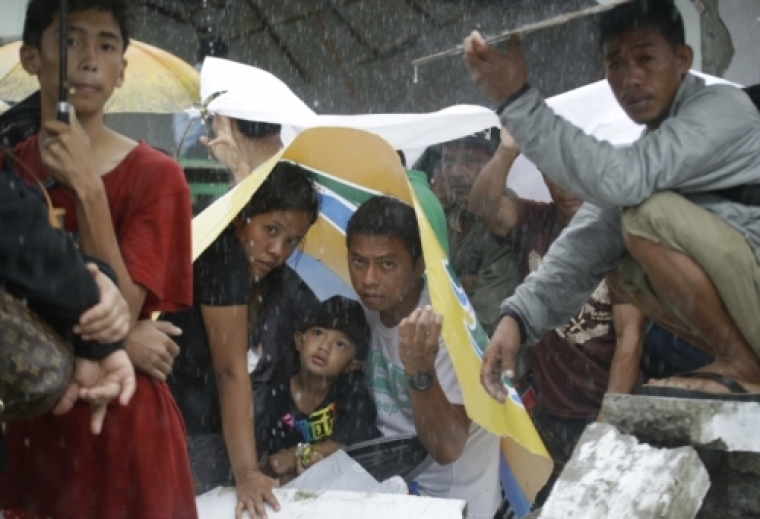
World Vision's Cities Prepare! report calls on leaders to recognise the ongoing threat to the large number of the world's population living in slums and squatter settlements especially in the Asia-Pacific region that make them particularly vulnerable to weather-related disasters.
World Vision's Head of Humanitarian and Emergency Affairs, Anthea Spinks says the report urges leaders to take concrete action to prepare their cities for future disasters.
"Typhoon Haiyan was not only a horrific disaster costing many lives but a warning that our region's cities need to pro-actively prepare for future disasters," said Ms Spinks. "We need to make sure that people are living in cities that have the best possible chance of withstanding natural disasters."
A month after Typhoon Haiyan, the toll of those dead or missing has risen to more than 7000 while a further 14 million survivors are facing an uncertain future after losing their homes and livelihoods.
Cities Prepare! warns that ongoing rapid urbanisation is already putting the region's largest cities under pressure. Asia is home to half the world's urban population. In 2008, the UN estimated that roughly 44 million people across the region move to urban areas each year.
Ms Spinks that disaster preparedness can strengthen a city's resilience and ability to cope so that when a disaster strikes the loss of life and livelihoods cab be minimised.
"In the Philippines people are living 6000 to every square kilometre in urban areas, putting city dwellers – particularly those in the poorest communities – at heightened risk particularly in the aftermath of disasters," she said. "The more a city can prepare and plan for future disasters, the greater the chance the impact of a disaster can be lessened."
Ms Spinks said World Vision was calling on the Australian Government to increase its investment in disaster risk reduction in the region through Australia's aid program.
"The Government should continue to prioritise the Asia Pacific region with preparedness activities, with particular attention to countries with high vulnerability to disasters and low capacity to respond."
World Vision has distributed life-saving essentials to more than 100,000 people in the Philippines since Haiyan. Distributions in badly affected areas have provided food, clean water, blankets, emergency shelter, sleeping mats and mosquito nets to help prevent malaria.